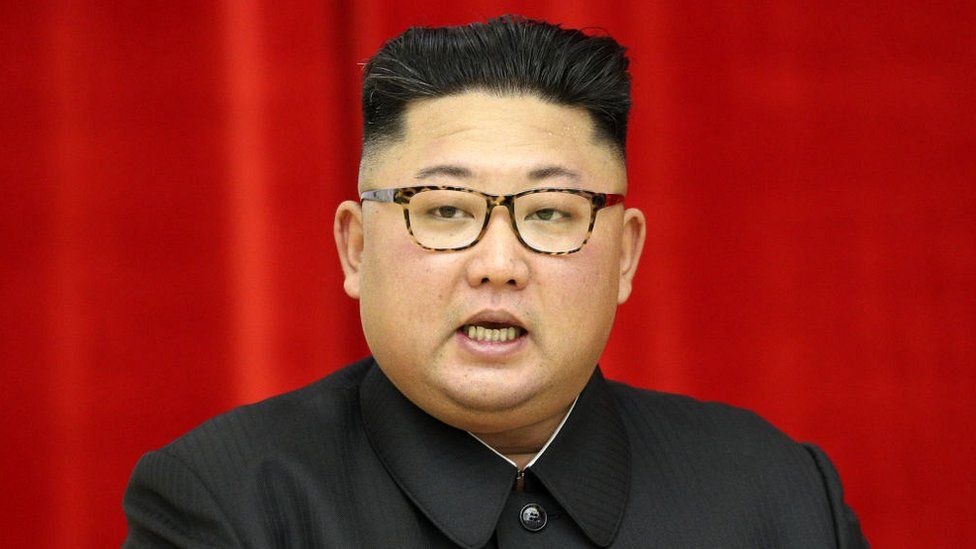Kim Jong-un’s Rise to Power: Leader Of North Korea

Kim Jong-un’s rise to power in North Korea was a complex and dramatic process marked by political intrigue, power struggles, and the consolidation of authority.
Kim’s path to leadership began in 2008 when he was appointed to the National Defense Commission, the highest military body in North Korea. This move signaled his growing prominence within the regime and the trust placed in him by his father, Kim Jong-il, the then-leader of North Korea.
In 2010, Kim Jong-il’s health began to deteriorate, and Kim Jong-un’s role within the regime became increasingly important. He was promoted to the rank of four-star general and given command of key military units.
Upon Kim Jong-il’s death in December 2011, Kim Jong-un was officially declared the Supreme Leader of North Korea. At the age of 27, he became the youngest leader in the world and inherited a country facing significant economic and political challenges.
Kim Jong-un’s early years in power were marked by a series of significant events that shaped his rule and the trajectory of North Korea. These events included:
- The execution of his uncle, Jang Song-thaek, in 2013, who was seen as a potential rival for power.
- The launch of North Korea’s first satellite into orbit in 2012, which was seen as a major technological achievement for the country.
- The adoption of a new constitution in 2013, which strengthened Kim Jong-un’s authority and enshrined the Kim family’s leadership as the “eternal leaders” of North Korea.
- The development of North Korea’s nuclear and missile programs, which have become a major source of tension and concern for the international community.
Through these actions, Kim Jong-un has consolidated his authority within the North Korean regime and established himself as a powerful and influential leader.
North Korea’s Nuclear and Missile Programs

Leader of north korea – Under Kim Jong-un’s leadership, North Korea’s nuclear and missile programs have advanced significantly, raising international concerns and posing a threat to regional stability. This pursuit has been driven by a complex interplay of strategic motivations and geopolitical factors.
Motivations and Strategic Goals
- Deterrence and Security: North Korea views nuclear weapons as a deterrent against external threats, particularly from the United States and South Korea.
- Political Prestige: The development of nuclear weapons has enhanced North Korea’s international status and given it a sense of power and prestige.
- Economic Leverage: North Korea has used its nuclear program as a bargaining chip to gain economic concessions and diplomatic recognition from other countries.
History and Development
North Korea’s nuclear program began in the 1980s, and the country conducted its first nuclear test in 2006. Since then, it has conducted several more tests, including a hydrogen bomb test in 2017. North Korea has also developed a range of ballistic missiles, including intercontinental ballistic missiles (ICBMs) capable of reaching the United States.
International Response, Leader of north korea
North Korea’s nuclear and missile programs have drawn international condemnation and sanctions. The United Nations Security Council has passed several resolutions imposing sanctions on North Korea, and the United States has led diplomatic efforts to pressure North Korea to abandon its nuclear ambitions.
North Korea’s Economic Policies and Human Rights Situation
Kim Jong-un’s economic policies have focused on a combination of economic liberalization and self-reliance, known as the “Byungjin Line.” This policy has aimed to improve the country’s economic performance while maintaining its political and ideological control.
Economic Challenges and Opportunities
North Korea faces significant economic challenges, including sanctions imposed by the international community, a lack of foreign investment, and a centrally planned economy that has hindered economic growth. However, the country also has some potential economic opportunities, such as its mineral resources, a skilled labor force, and the potential for economic cooperation with South Korea.
Human Rights Situation
The human rights situation in North Korea remains a major concern. The country has been accused of systematic human rights abuses, including political repression, forced labor, and food shortages. The government has denied these accusations, but international organizations and human rights groups have documented widespread human rights violations.
The enigmatic leader of North Korea, with his unwavering determination, stands tall amidst the tumultuous world stage. Like the fierce rivalry between Uruguay and the United States on the football pitch ( uruguay vs usa ), the North Korean leader’s resolve remains unyielding, shaping the geopolitical landscape with his every move.
The leader of North Korea, Kim Jong-un, has a firm grip on power, ruling over a nation of fiercely loyal nationals. These nationals are indoctrinated from a young age to revere their leader and to follow his directives without question.
Kim Jong-un’s iron-fisted rule ensures that his authority is absolute, and that any dissent is swiftly and harshly punished.